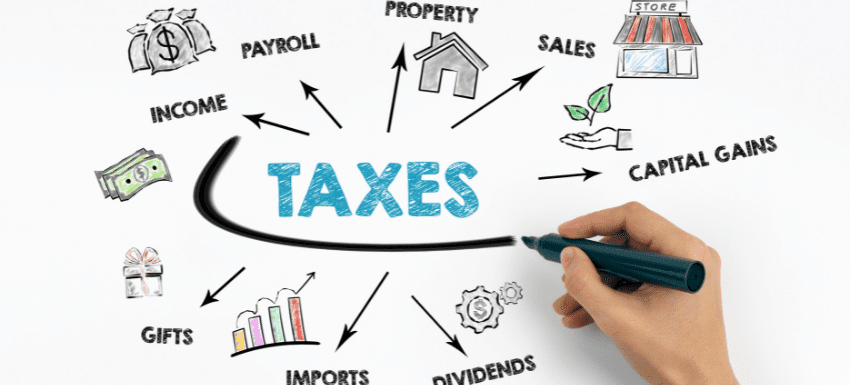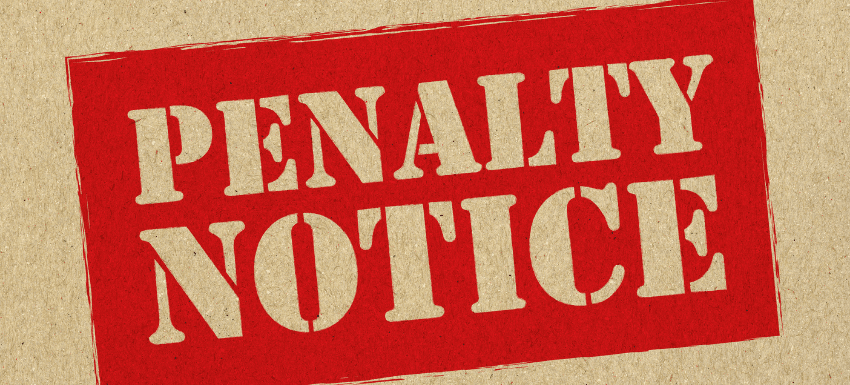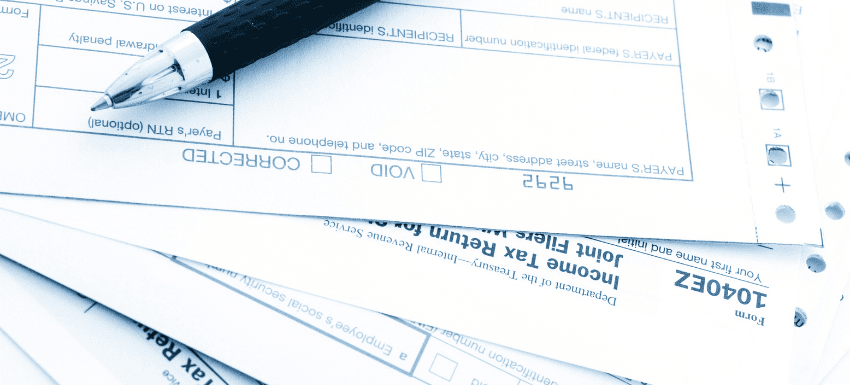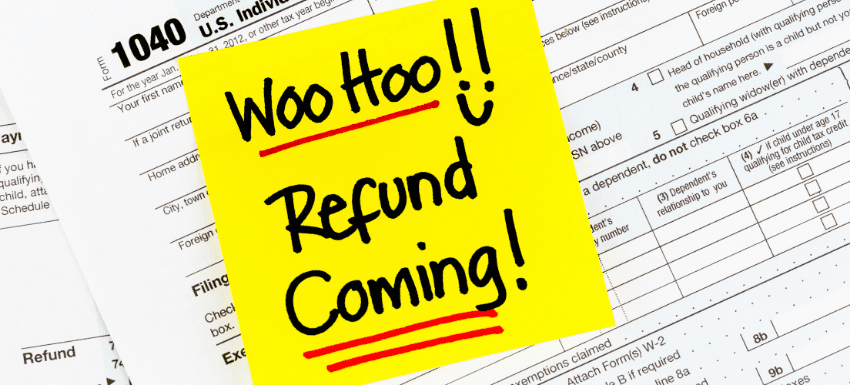
Filing Taxes Late in Canada
Canadians are required to file tax returns every year. There are many reasons why Canadians fall behind filing their tax returns, including:
- They don’t think they will owe, so they don’t file their late tax
- They are aware they will owe but lack the funds to cover it
- People incorrectly believe that if they don’t file, they won’t be found out and won’t have to pay
- Lost their records and/or receipts and have no idea how much they earned, and can’t estimate or prove how much they spent
- When dealing with their late tax filing, they find it so stressful that they assume that if they avoid it, eventually it will go away by itself
If you fail to file your taxes in Canada or if you file them late, you may be wondering what happens. The consequences are different in both situations. Tax evasion can be a crime, so even if your returns are late and you can’t afford to pay your taxes, you should file them.

What Happens if You Don’t File your Taxes in Canada?
By law, you must file a tax return if you are required to do so. Having a tax debt isn’t a crime, but failing to file taxes when you are supposed to is. Every eligible Canadian must file income taxes every year.
Not filing a tax return = tax evasion = crime.
If you are behind on filing your returns, it would be considered tax evasion. Individuals or businesses who evade Canadian tax laws are considered to be engaging in tax evasion. By failing to file income taxes on time, you are ignoring Canadian tax law and the Canada Revenue Agency may consider you to be trying to evade taxes. Tax evasion is punishable by fingerprinting, court-imposed fines, prison time, and possibly a criminal record. Your reputation and future could be damaged.
Having a tax debt and owing money to the CRA (Canada Revenue Agency) is not against the law. However, not filing your tax returns is.
There are still possible ways that you can get hurt if you have late tax in Canada, even if the CRA does not charge you with tax evasion. If you fail to file your taxes on time, the CRA may charge you penalties and interest. If you wait and do not file your tax return on time, you will incur large penalties and interest. There is even a possibility of prosecution.
In the case of repeatedly filing your taxes late (or not filing them at all), you will incur greater penalties. Your budget will be put under significant strain if you try to pay the CRA what you owe.
Regardless of whether you cannot afford to pay your tax debt, you should still try to file on time to avoid penalties.
CRA can estimate your income, expenses, and other amounts on your behalf if you do not file. Using this assessment, it can determine how much tax you owe. If the CRA is doing a Notational Assessment, they will look at all the information and make wild assumptions. Thus, they can estimate your tax debt, interest, and penalties, and proceed to collect the estimated tax debt.
It is in no one’s best interests to have this happen, so the easiest way to avoid it is to file your taxes on time.

What Happens if you File your Taxes Late?
There is no doubt that the Canada Revenue Agency is an extremely powerful agency. Canada’s federal government has given the CRA responsibility for the administration of tax laws for all provinces and territories. Canadian taxation relies on self-assessment and mandatory compliance. Taxpayers are required to file their returns on time. Canadian residents and even non-residents can be required to file income tax returns under certain circumstances.
The failure to file taxes on time is a serious issue that should not be ignored. CRA charges significant interest and penalties for late filing.
The penalty for filing taxes late increases the longer you wait to file your return, so if you owe a lot of money and have waited quite a while to file, the penalty may be quite high.
On April 30th of each year, most taxpayers are required to file their returns. If an individual is self-employed, he or she has until June 15th to file, but if they have a balance owing, they must pay the balance by April 30th to avoid interest charges.
When your taxes are not filed by the deadline, the CRA charges you a penalty on May 1st as well as compound daily interest charges. You could still face financial consequences if you do not file your taxes, even if you do not owe money. Refunds will be withheld until you file and, even if you are not expecting a refund, any government benefits you are expecting (such as GST/HST benefits or child benefits) will probably be delayed until you file your late tax.
You may wonder how to file late tax returns if you fail to file your tax return on time. It’s easy to file your return if the tax return is less than a year old: just do it as you always would. Complete the form and mail it in. You will be notified if you owe tax or if the CRA assesses a penalty for late tax filing. The NETFILE service remains open for many months after the deadline, so you can submit your taxes using this service.
You may also qualify for the CRA’s Voluntary Disclosure Program (VDP) if your tax return is older. Taxpayers can use this program to correct their taxes or to file returns that weren’t filed on time. You will still have to pay your taxes (plus interest, if applicable) if you are accepted into the VDP, but you will be relieved of penalties and potential prosecution. Despite these changes, it’s important to note that those who the CRA believes willfully avoided their tax obligations will not be entitled to the same relief as those who made an unintentional error. Therefore, it is important to consult a professional before applying for the VDP.
Late Tax Return Penalty
As mentioned, the CRA is very serious about the deadlines it sets. There will be penalties for taxpayers who fail to comply with these deadlines and file taxes on time.
In the event that you file your taxes late, the CRA may charge you a late filing penalty. In addition, if you fail to pay a balance owing, the CRA will charge compound daily interest on the unpaid amount beginning the day after your return is due. The deadline for most people is usually May 1st, since tax returns are typically due by April 30th. Due to this daily interest rate, the longer you delay paying your tax debt, the more expensive it becomes. However, the CRA does not charge interest exclusively on outstanding debt. It also penalizes late taxpayers who file their taxes late.
Tax returns filed late are subject to a penalty of 5% of the tax year’s balance owing plus 1% for every full month the return is late. However, this only applies if you have recently filed your taxes on time. You may be charged a higher penalty if you frequently file late. This is designed to discourage late filing.
If you fail to file your taxes on time, there are other possible outcomes besides penalties and charges. As mentioned, if you don’t file your tax returns, the CRA could consider your actions to constitute tax evasion. This is a very serious charge and one that you do not want to find yourself faced with.

How Far Back Can You File Taxes in Canada?
To be on the safe side, make sure you file all your taxes on time if you are required to do so. Whatever the reason, you should take action to file your taxes as soon as possible if you cannot. Waiting will only make matters worse.
No matter how long you’ve been behind on your tax filing, getting compliant is important whether you’re 1 year, 5 years, or 10 years late. Although you might think it’s best not to file if you do not have the money to pay your late taxes, this isn’t the best course of action. You will not be forgotten by the CRA, and every day that passes will cost you more money.
Even if you do not owe any money, you should still file your late taxes. You can still make a mistake by filing your taxes late if you don’t owe Canada Revenue Agency any money. If you don’t file, you won’t receive many benefits (such as the Canada Child Benefit). By not filing, you may lose out on benefits you are entitled to receive.
Tax preparers recommend not merely sending in a batch of returns if you are behind on filing. To become compliant with the CRA, you will need professionals who are highly experienced and who can negotiate with the CRA on your behalf. An untimely tax filing is a serious tax problem that should be handled cautiously. You should follow a process and use programs to file past tax returns with the Canada Revenue Agency.
How to File Late Tax Returns in Canada
You may apply for the Voluntary Disclosure Program (VDP) if you have several unfiled returns that are more than a year late or if you have several returns that have not been filed. The program is for people who have not filed returns that should have been filed or have made errors or omissions on their returns.
You may be eligible for relief from late tax prosecution and penalties if you are accepted into the VDP. Taxpayers who wish to file late tax returns in Canada can benefit from this. VDP applications must meet certain conditions in order to be considered.
Voluntary Disclosure Program applicants must meet the following requirements:
- Be voluntary. CRA will contact you about your returns once you provide the missing tax information.
- Be complete. During your disclosure, you must inform the CRA of all incorrect or missing information.
- Have a penalty attached. The VDP is not for you if you do not face a potential penalty.
- Be more than a year old. It is safe to file your tax return as usual if your return is less than a year old.
- Include payment of the late tax debt owing.
How Many Years Back Can I Get a Tax Refund in Canada?

No penalty will be imposed on you if you do not owe money on your tax return. Nevertheless, filing is still strongly recommended. You must file a return in order to receive a refund; otherwise, the CRA will hold onto it until you do. You will forfeit money that would otherwise be yours. It’s also possible that your Canada benefits (such as the child tax benefit) won’t be delivered late if you have late tax that have not been filed.
The deadline for filing a tax return and claiming a refund is ten years from the due date. It is possible that the CRA will not give you the money you are owed after this time.
Move Forward With AG Group!
Take steps to protect yourself from phishing and other forms of fraud that may lead to identity theft or financial fraud as tax season approaches. You will never receive an email with a link that you have not requested, or receive a request for personal or financial information via email or text message, nor will you receive a request for payments by prepaid credit card.
It is natural to be confused if you are a first-time tax-payer in Canada. In order to smoothly complete your tax filing process, hire AG Group Enterprise Inc. We have been providing tax help, investment advice, and business advice for over a decade and have the skills and knowledge required to help you through the ordeal of tax filing.
With AG Group’s help, you can protect the future of your family and your finances.



